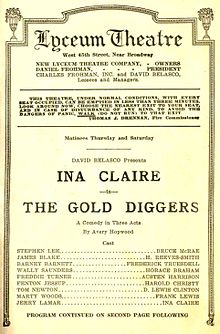
James Avery Hopwood was an American playwright of the Jazz Age. He had four plays running simultaneously on Broadway in 1920.

Busby Berkeley was an American film director and musical choreographer. Berkeley devised elaborate musical production numbers that often involved complex geometric patterns. Berkeley's works used large numbers of showgirls and props as fantasy elements in kaleidoscopic on-screen performances.
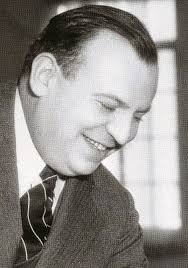
Alexander Dubin was an American lyricist. He is best known for his collaborations with the composer Harry Warren.

Gold digger is a term for a person, typically a woman, who engages in a type of transactional relationship for money rather than love. If it turns into marriage, it is a type of marriage of convenience.
Gold Digger, Gold Diggers or The Gold Diggers may refer to:

David Belasco was an American theatrical producer, impresario, director, and playwright. He was the first writer to adapt the short story Madame Butterfly for the stage. He launched the theatrical career of many actors, including James O'Neill, Mary Pickford, Lenore Ulric, and Barbara Stanwyck. Belasco pioneered many innovative new forms of stage lighting and special effects in order to create realism and naturalism.
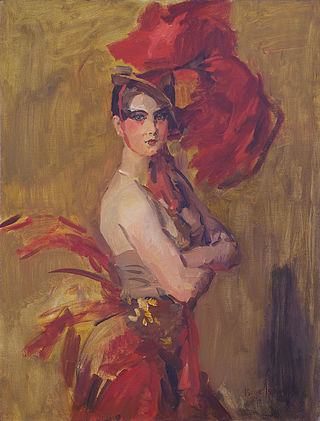
A showgirl is a female performer in a theatrical revue who wears an exotic and revealing costume and in some shows may appear topless. Showgirls are usually dancers, sometimes performing as chorus girls, burlesque dancers or fan dancers, and many are classically trained with skills in ballet. The term showgirl is also sometimes used by strippers and some strip clubs use it as part of their business name.

Gold Diggers of 1933 is a pre-Code Warner Bros. musical film directed by Mervyn LeRoy with songs by Harry Warren (music) and Al Dubin (lyrics), staged and choreographed by Busby Berkeley. It stars Warren William, Joan Blondell, Aline MacMahon, Ruby Keeler, and Dick Powell, and features Guy Kibbee, Ned Sparks and Ginger Rogers.

Painting the Clouds with Sunshine is a Technicolor musical film released in 1951, directed by David Butler and starring Dennis Morgan and Virginia Mayo. The film is a musical adaptation of the 1919 play The Gold Diggers by Avery Hopwood. It is the fourth film adaptation of the play, after The Gold Diggers (1923), Gold Diggers of Broadway (1929) and Gold Diggers of 1933 (1933). The film is a jukebox musical, featuring popular songs from the 1910s to 1930s, including two songs from Gold Diggers of Broadway and one song from Gold Diggers of 1933.
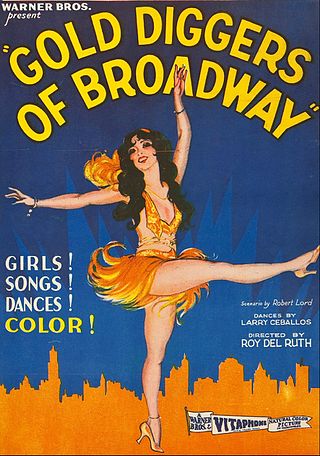
Gold Diggers of Broadway is a 1929 American pre-Code musical comedy film directed by Roy Del Ruth and starring Winnie Lightner and Nick Lucas. Distributed by Warner Bros., the film is the second all-talking, all-Technicolor feature-length film.

"The Gold Diggers' Song " is a song from the 1933 Warner Bros. film Gold Diggers of 1933, sung in the opening sequence by Ginger Rogers and chorus. The entire song is never performed in the 1933 movie, though it introduces the film in the opening scene. Later in the movie, the tune is heard off stage in rehearsal as the director continues a discussion on camera about other matters.

Edna Louise Hibbard was a stage and motion picture actress from Detroit, Michigan. She had a sharp tongue and was known for her roles in comedy.
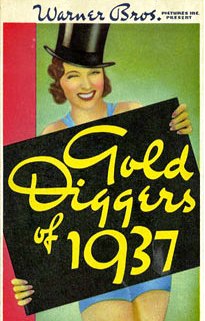
Gold Diggers of 1937 is a Warner Bros. movie musical directed by Lloyd Bacon with musical numbers created and directed by Busby Berkeley. The film stars Dick Powell and Joan Blondell, who were married at the time, with Glenda Farrell and Victor Moore.

The Gold Diggers is a Warner Bros. silent comedy film directed by Harry Beaumont with screenplay by Grant Carpenter based on the play The Gold Diggers by Avery Hopwood which ran for 282 performances on Broadway in 1919 and 1920. Both the play and the film were produced by David Belasco. The film stars Hope Hampton, Wyndham Standing, and Louise Fazenda. It was also the (uncredited) film debut of Louise Beavers.

Fast and Loose is a 1930 American pre-Code romantic comedy film directed by Fred C. Newmeyer and starring Miriam Hopkins, Carole Lombard and Frank Morgan. The film was written by Doris Anderson, Jack Kirkland and Preston Sturges, based on the 1924 play The Best People by David Gray and Avery Hopwood. Fast and Loose was released by Paramount Pictures.
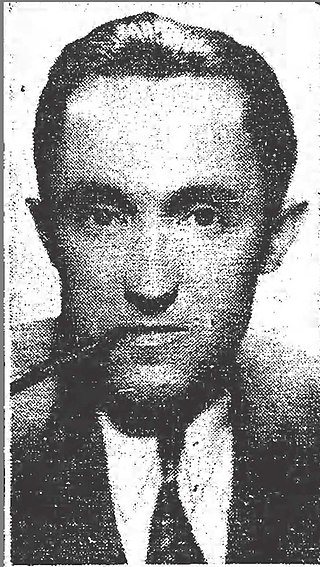
Wilson Collison was a writer and playwright.
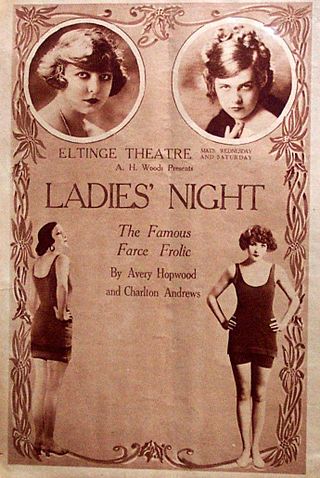
Ladies' Night is a three-act play originally written by Charlton Andrews and later reworked by Avery Hopwood. The play was a sex farce with part of the action set in a Turkish bath instead of a bedroom. A. H. Woods staged it on Broadway, where opened under the direction of Bertram Harrison on August 9, 1920 at the Eltinge 42nd Street Theatre. Ladies' Night had a run of 375 performances with the final curtain falling in June 1921. It was revived on Broadway in adapted forms in 1945 and 1950.

The Bat is a three-act play by Mary Roberts Rinehart and Avery Hopwood that was first produced by Lincoln Wagenhals and Collin Kemper in 1920. The story combines elements of mystery and comedy as Cornelia Van Gorder and guests spend a stormy night at her rented summer home, searching for stolen money they believe is hidden in the house, while they are stalked by a masked criminal known as "the Bat". The Bat's identity is revealed at the end of the final act.

The Demi-Virgin is a three-act play written by Avery Hopwood. Producer Albert H. Woods staged it on Broadway, where it was a hit during the 1921–22 season. The play is a bedroom farce about former couple Gloria Graham and Wally Deane, both movie actors, whose marriage was so brief that the press speculated about whether Gloria was still a virgin. She attempts to seduce Wally when they are forced to reunite for a movie, but after playing along he surprises her by revealing that their divorce is not valid.
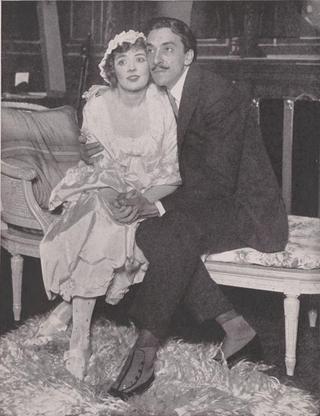
Sadie Love is a three-act play written by Avery Hopwood. Producer Oliver Morosco staged it on Broadway, where it opened at the Gaiety Theatre in November 1915. The play is a farce about a widow named Sadie Love, who marries a prince but discovers he still has feelings for a previous girlfriend. The play was adapted as a movie of the same name in 1919.
